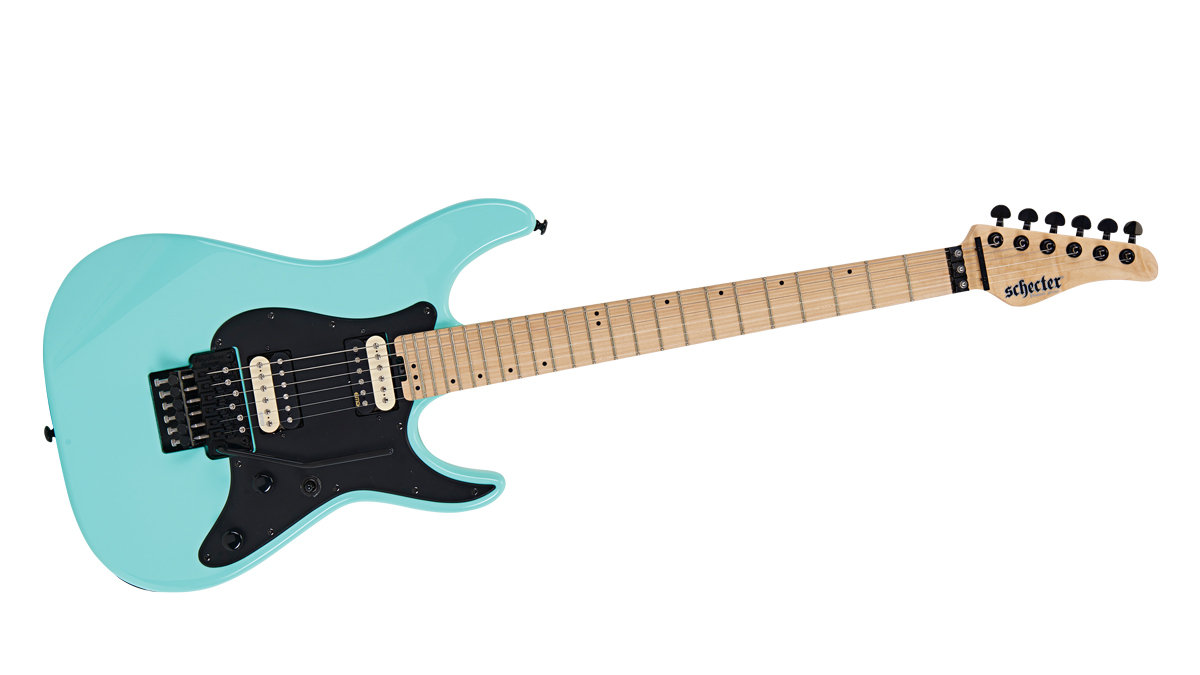MusicRadar Verdict
While the haircuts may have changed since the ‘80s, the desire for a fun, well-appointed, classic shred machine will clearly never die out.
Pros
- +
Immensely playable.
Cons
- -
Very few.
MusicRadar's got your back
The 1980s has a lot to answer for, particularly in musical terms.
And even more so in the worlds of rock and metal, which gave us mullet haircuts, neon spandex and power ballads. The only redeeming feature of the era is that the guitarists all had serious game. It was, you see, the dawn of the shredder. And it is to this age that Schecter is paying homage with its new Sun Valley Super Shredder series.
As children of the 80s, we remember the impact these high-octane S-types had on the guitar world. It was the time of Charvel, Jackson and Kramer, where a sub-sect of guitars were built specifically with one thing in mind: speed. Wafer-thin necks, ergonomic body shapes and Floyd Rose vibratos gave ultra-technical players the perfect tools with which to express themselves.
Schecter’s Korean-built Sun Valley Super Shredder is a near-identical recreation of those classic speed-enablers from the 80s. You get a mahogany body and maple neck, with an extremely thin, C-profile 14" radius fretboard. The generous cutaways around the body and the bolt-on neck give ample room to reach those upper registers, and the overall quality and finish of the 24 extra jumbo frets is high.
The body comes in a variety of finishes, including flamboyant Lambo Orange and the rather attractive Sea Foam Green (on review here) and it feels nice and solid. The obligatory Floyd Rose Special vibrato copes admirably with all manner of dives and wobbles, and tuning remained spot on no matter what we threw at it. Admittedly, the inclusion of a full-fat, original Floyd would have increased desirability levels somewhat, but it would also have added a fair wedge to the RRP, so it’s an understandable concession to make.
An interesting inclusion is the EMG Retro Active pickups, which differ from regular active EMGs in that they offer an open-coil design and traditional windings paired with a preamp. The bridge pup has a warmth to its bottom end, while the neck gets you comfortably in the region of some interesting PAF-style tones.
They may not excel at more modern takes on metal, but it’s worth remembering heavy music comes in many different flavours. Back in the day, that usually meant filling solos with as many upper-register notes as humanly possible. At that, this package delivers wonderfully.
In its own way, this proves to be quite a grown-up guitar. It has high-quality pickups, it’s well finished and does its one job exceptionally well.
Chris Corfield is a journalist with over 12 years of experience writing for some of the music world's biggest brands including Orange Amplification, MusicRadar, Guitar World, Total Guitar and Dawsons Music. Chris loves getting nerdy about everything from guitar and bass gear, to synths, microphones, DJ gear and music production hardware.
“I said, ‘Are we sure we can write a song about death?’”: The story of Mike + The Mechanics' classic No.1 The Living Years
“Without investment in music education our talent pipeline is at risk of drying up along with the huge opportunities for economic growth it brings”: UK Music draws up five point plan to “turbocharge” music education
“How daring to have a long intro before he’s even singing. It’s like psychedelic Mozart”: With The Rose Of Laura Nyro, Elton John and Brandi Carlile are paying tribute to both a 'forgotten' songwriter and the lost art of the long song intro











